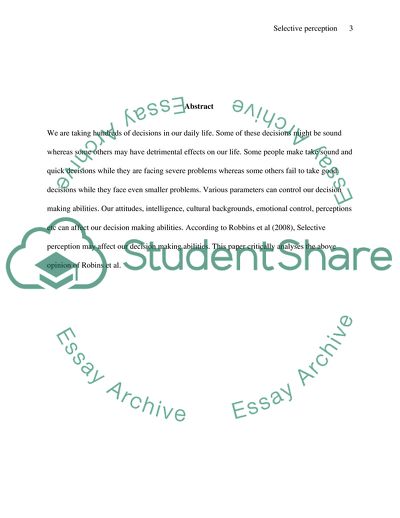Cite this document
(Selective Perception and Decision Making Research Paper - 1, n.d.)
Selective Perception and Decision Making Research Paper - 1. https://studentshare.org/psychology/1747811-topic-1-according-to-robbins-et-al-2008-selective-perception-may-affect-decision-making-do-you-agree-explain-your-answer-with-supporting-theory-and-examples
Selective Perception and Decision Making Research Paper - 1. https://studentshare.org/psychology/1747811-topic-1-according-to-robbins-et-al-2008-selective-perception-may-affect-decision-making-do-you-agree-explain-your-answer-with-supporting-theory-and-examples
(Selective Perception and Decision Making Research Paper - 1)
Selective Perception and Decision Making Research Paper - 1. https://studentshare.org/psychology/1747811-topic-1-according-to-robbins-et-al-2008-selective-perception-may-affect-decision-making-do-you-agree-explain-your-answer-with-supporting-theory-and-examples.
Selective Perception and Decision Making Research Paper - 1. https://studentshare.org/psychology/1747811-topic-1-according-to-robbins-et-al-2008-selective-perception-may-affect-decision-making-do-you-agree-explain-your-answer-with-supporting-theory-and-examples.
“Selective Perception and Decision Making Research Paper - 1”. https://studentshare.org/psychology/1747811-topic-1-according-to-robbins-et-al-2008-selective-perception-may-affect-decision-making-do-you-agree-explain-your-answer-with-supporting-theory-and-examples.


